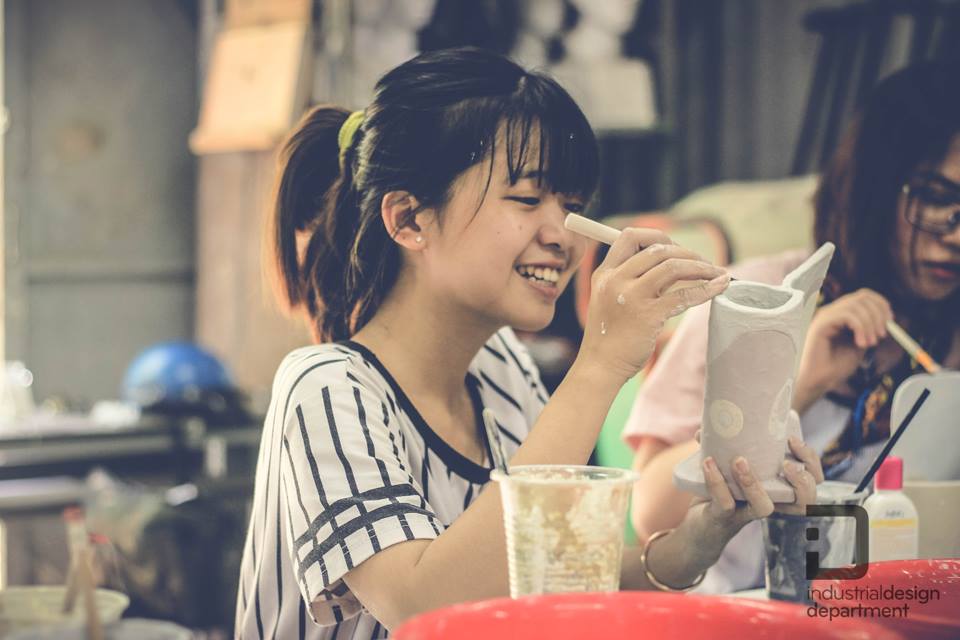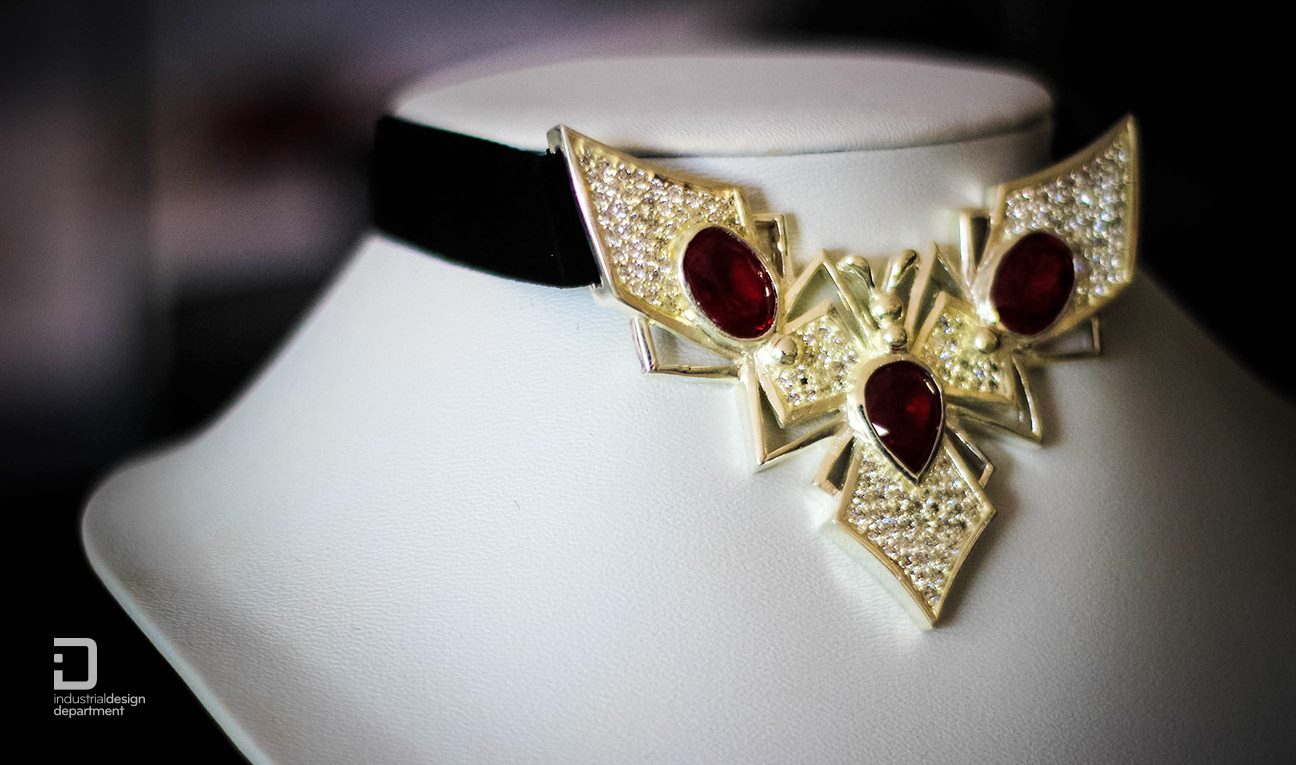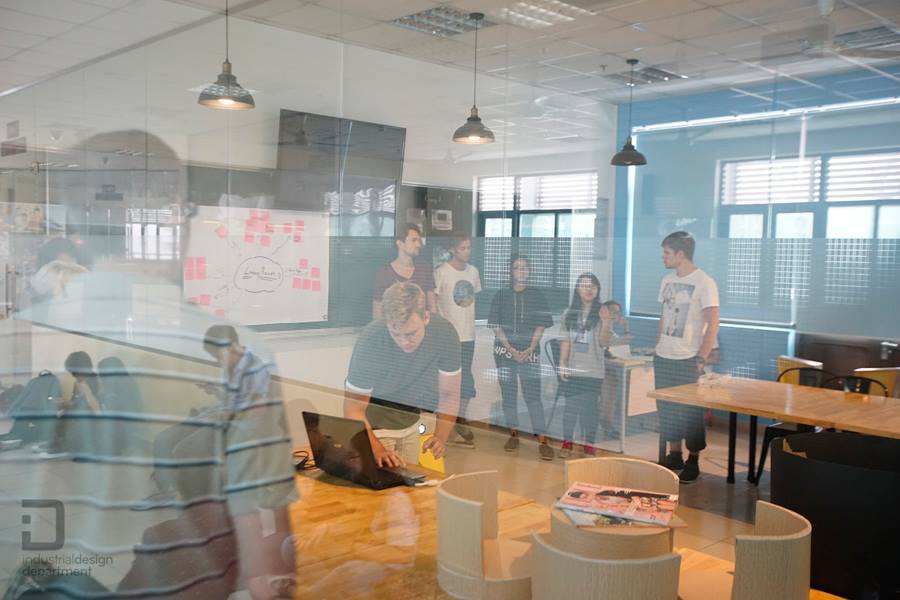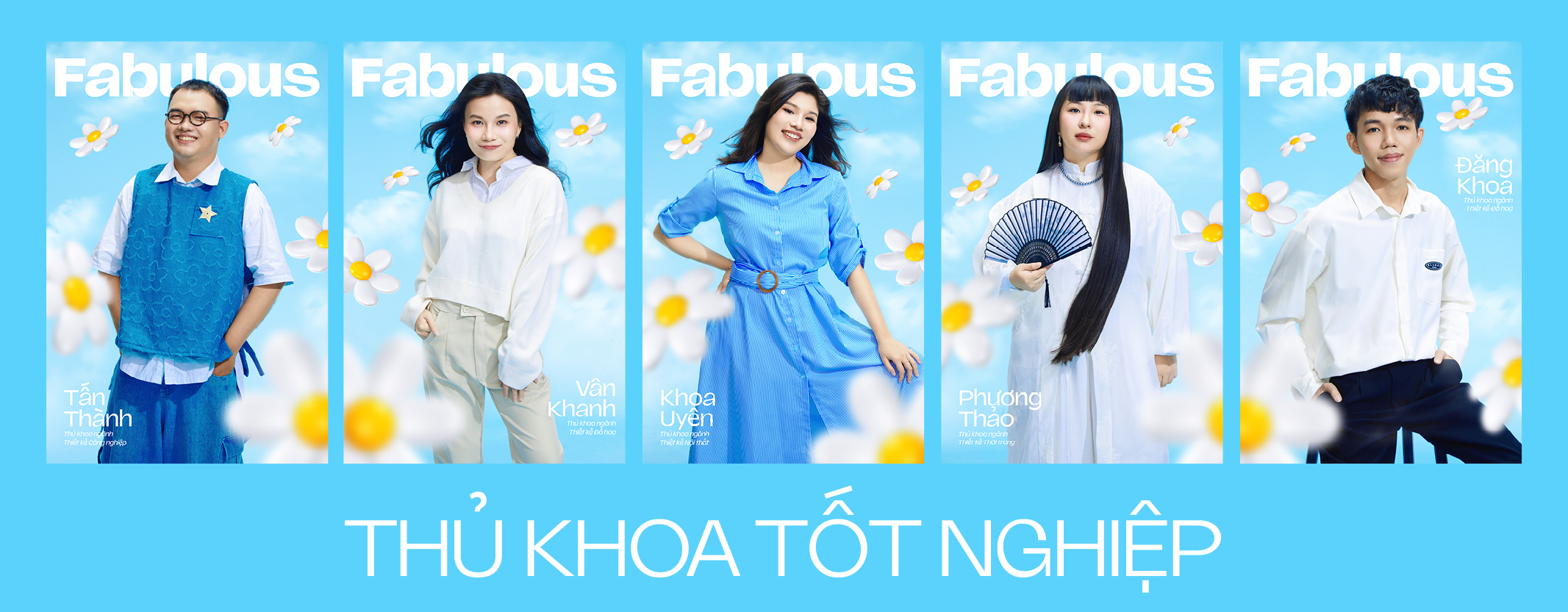INDUSTRIAL DESIGN - ID COURSE: 7210402
Standard programme
4 years - Bachelor of Arts with major in Industrial Design
This program prepares students for the profession with a culture of learning supported by studio-project based learning, applied design research, and innovation.
Industrial design is a vital part of modern-day living. Every day of our lives, we encounter products designed and manufactured with the intention of making our lives easier. It is industrial designers, incorporating a lateral and cross-disciplinary approach to problem-solving, who create the most useful products.
The primary focus of our Industrial Design program is ensuring that our graduates are completely industry-ready, able to think strategically and provide innovative design solutions in a commercial context. The course promotes an awareness of the place of design in society and its effect on people, the environment, and the economy, and provides students with the ability to work independently or collaboratively.
The transferable skills learnt in this course enable graduates to apply for a range of careers within the broader creative industries including roles in: product design, design consultancy, design engineering, interior design, special effects, exhibition design, human factors and usability, user-experience (design UX), service design, prototyping and specialist model making, advertising, product packaging and POS (point of sale), product marketing.
POSSIBLE CAREERS IN INDUSTRIAL DESIGN
- Product design
- Design consultancy
- Design engineering
- Interior design/space planning
- Exhibition design
- Special FX model-making
- Graphics/packaging/point-of-sale design
- Product marketing or research
You'll be provided with a range of experiences and support to develop transferable skills that will enable you to work within the broader creative industries after graduation. Our approach is to provide a creative environment for you to thrive and achieve your full potential. The curriculum also includes the specialist study of ergonomics and human factors to ensure your designs are fit for purpose.
You'll also have the opportunity to test your designs with our empathy suits to ensure a fully user-centered approach to design has been adopted. Graduation project implemented in last year is an opportunity for students to apply all the knowledge and skills to solve deeper problems of the specific product.
MODULES
| Fundamentals of Informatics 1 | English Community 1 | Skills for sustainable development | Learning methods in university |
| Swimming (Compulsory) | National Defense Education - 3rd Course | Technical Drawing | Analyzing the Natural World |
| History of Fine Arts | Drawing 1 | Introduction to drawing |
|
| Fundamentals of Informatics 2 | English Community 2 | Teamwork Skills | National Defense Education - 1st Course |
| History of Design | Design Methodology | Drawing 2 | Visual Fundamentals |
| Introduction to composition in decoration | Interdisciplinary projects Trash to treasure design, Fabric design 1, Fabric design 2, Leather 1, Leather 2, Dyeing techniques, Jewelry 1, Jewelry 2, Ceramics 1, Ceramics 2, Wood design, Advanced furniture design, Lighting devices, Event Identity Design, Traditional product and Gift, Poster Design, Editorial Design, Calendar Design, Makeup Arts | ||
| English Community 3 | National Defense Education - 2nd Course | Sculpture Fundamentals | Drawing 3 |
| Material and Making Methods | Industrial Design Principles | Deployment of Product Drawing |
|
| Interdisciplinary projects Trash to treasure design, Fabric design 1, Fabric design 2, Leather 1, Leather 2, Dyeing techniques, Jewelry 1, Jewelry 2, Ceramics 1, Ceramics 2, Wood design, Advanced furniture design, Lighting devices, Event Identity Design, Traditional product and Gift, Poster Design, Editorial Design, Calendar Design, Makeup Arts | |||
| Writing and Presenting Skills | Drawing 4 | Ergonomics – Human factors | Deployment of Product Perspective Drawing |
| Functional Forms | Presentation techniques | Industrial Design Studio 1 |
|
| The Basic Principles of Marxism - Leninism | Photography Techniques | Creativity Methodology | Industrial Design Studio 2 |
| Industrial Design Studio 3 |
|
|
|
| Ho Chi Minh Ideology | Introduction to Legislation | Special Courses 1 | Industrial Design Studio 4 |
| Interdisciplinary projects Trash to treasure design, Fabric design 1, Fabric design 2, Leather 1, Leather 2, Dyeing techniques, Jewelry 1, Jewelry 2, Ceramics 1, Ceramics 2, Wood design, Advanced furniture design, Lighting devices, Event Identity Design, Traditional product and Gift, Poster Design, Editorial Design, Calendar Design, Makeup Arts | |||
| Graduation Internship |
| Revolutionary Way of Communist Party of Vietnam | Industrial Design Studio 6 | Industrial Design Studio 5 | Special Course 2 |
| Interdisciplinary projects Trash to treasure design, Fabric design 1, Fabric design 2, Leather 1, Leather 2, Dyeing techniques, Jewelry 1, Jewelry 2, Ceramics 1, Ceramics 2, Wood design, Advanced furniture design, Lighting devices, Event Identity Design, Traditional product and Gift, Poster Design, Editorial Design, Calendar Design, Makeup Arts | |||
| Professional Practice & Ethics & Portfolio | Integrated Project or Graduation Thesis |
Note:
- Students who do not pass the English program must take additional English courses depending on their ability, including preparatory English 1, 2, 3.
- Students must meet the required English output standards.
- Students take the MOS certification exam on MS.Word, Excel according to regulations.
SUBJECT INFORMATIONS
- Photography
-
Photography is a science because there are basic principles of physics that govern success. Photography is art because its beauty is subjective. This course provides students basic knowledge of photography. Students will understand the principle and use the camera, understand the use of natural and artificial light and they can create a professional looking image.
This course contains:
- Basic knowledge of camera and photography
- History of photography and composition rules
- Using the light
- Fashion photography
- Still life photography
- Landscape photography
- Editing
Credits: 2 (1.1) Theory: 15 - Practice: 30
- FUNCTIONAL FORMS
-
Functional Forms belongs to the major fundamental course.
This course will provide practical spaces for students to work with visual elements that construct a certain object in terms of three dimensional and material languages. Throughout the course, students will examine different ways to create various forms that allow functions and are embedded with aesthetical elements. Materials used in the course are open to exploring as long as students could provide with the appropriate forms and functions.
Credits: 3 (2.1) Theory: 30 - Practice: 30 - Self-learning: 90
- DESIGN METHODOLOGY
-
Design Methods belongs to the major fundamental course.
Design Methods provides the student with the basement of design working process from the problem identify phase, planning, idea developing to prototype making and evaluation before manufacturing. Within the design developing cycle, Design Methods for Industrial design students will mainly focus on the problem investigating and identifying phase with a short project-based exercise.
After the course, students will be able to establish a detailed research plan when approaching a design-oriented problem using appropriate design research methods in order to get information to produce design decisions for the next step.
Credits: 3 (3.0) Theory: 45 - Self-learning: 60
- ERGONOMICS AND HUMAN FACTORS
-
This course will offer students with the fundamental understanding of human factors involved in any type of product design. Students will understand and be able to develop design thinking and critical thinking skills when approaching a design from the usage aspects; be able to identify whether a design is appropriate for a certain circumstance of use which encourages them to further suggest a better solution.
Credits: 2 (2.0) Theory: 30 - Self-learning: 90
- INDUSTRIAL DESIGN STUDIO 2
-
ID Studio 2 provides learners with spaces to experience and design products with simple functions/ mechanical structures in which the electrical or hi-tech elements are not the main. The product range of ID Studio 2 is daily items and familiar with family/ office/ personal living routines which offers the student a considerable high demand for the job opportunity.
Through the ID Studio 2, students will establish the thinking of form-fits-function, of material-supports-function. Therefore, they will be able to approach the user-oriented way of thinking as well as self-improve the understandings of technical/ mechanical structure in order to be ready for the next ID Studios.
Credits: 3 (2.1) Theory: 30 - Practice: 30 - Self-learning: 90
- INDUSTRIAL DESIGN STUDIO 4
-
ID Studio 4 belongs to the advanced project group which required an upgraded in studio skills and design thinking. Products range covered in ID Studio 4 are the public furniture and items/ facilities used by the majority or placed at the open spaces for easy accessibility.
By working with this type of product, students will be able to plan and conduct a creative process with large scale products and pay attention to the demands of the majority.
Credits: 3 (2.1) Theory: 30 - Practice: 30 - Self-learning: 90
- INDUSTRIAL DESIGN STUDIO 6
-
ID Studio 6 is the final project in the advanced studio group. Therefore, the ID Studio 6 asks for the ability to integrate knowledge and skills from previous subjects in order to propose solutions with more innovative elements.
Similar to ID Studio 5, the ID Studio 6’s approach comes from the problem-oriented points of view which require disruptive ways of thinking, applications that are flexible and cross-disciplinary. Besides, the ID Studio 6 is open to the futuristic solution or those need the appropriate period of the coming time to be developed. The final submission of the whole project will be a finished presentation from visual printings/ digital forms to working process and prototypes.
Credits: 3 (2.1) Theory: 30 - Practice: 30 - Self-learning: 90
- PORTFOLIO
-
The preparation of a professional portfolio is an essential part of transitioning from graphic design student to working designer. A strong professional portfolio can also provide an important foundation for the development of a successful future design career. The course assignments will give students guidance in improving their current student portfolio pieces, developing new portfolio pieces, and presenting their work, and themselves, to prospective employers in a compelling way.
Credits: 3 (3.0) Theory: 45 - Self-learning: 90
- GRADUATION THESIS
-
Graduation thesis is conceived as a loose framework within which each student’s visual method is deployed across many diverse projects during the pass courses of study. While every thesis project is unique, there are several common features: a focus on methodology, the application of a visual method to studio work, and the organization of the work in a thoughtfully argued written document. The thesis includes a theoretical dissertation, in-depth study associated with the practice of creating multiple designs based on the previous research. Students who have excellent projects can continue to study for master or the doctoral degree.
Credits: 8 (0.8) Theory: 240 - Self-learning: 240
- INDUSTRIAL DESIGN PRINCIPLES
-
Industrial Design Principles belongs to the major fundamental course.
This is the introductory course to fundamental elements of Industrial design major. The student will learn and experience to understand the terminologies, the working process, the idea generation and its tools, prominent figures in the field and be able to analyze what makes them great in terms of industrial design language. Throughout the course, students will be able to answer what industrial design is; to which extent an industrial designer is needed; what makes us different from other major’s designers and who we would work together as a product development team, etc.
Industrial Design Principles course is theory-based with consecutive in-class activities and home exercises to get learners into the understanding and atmosphere of an industrial design studio.
Credits: 3 (3.0) Theory: 45 - Self-learning: 90
- MATERIALS & MAKING METHODS
-
Materials and Making Methods belongs to the major fundamental course.
This course employs a practical studio-based form of working which immerses students in consecutive contacts with material and related processing tools. Students will learn and self-practice the skills to work with different materials, from the common ones which will be used frequently in the coming projects – wood, plastic, ceramics, natural materials – to the rare and limited access ones – precious metals, glass, etc.
Materials and Making Methods aims to provides students with a fundamental prototype making skill. Besides, understanding the materials and being able to control the physical form of products will also benefit students in the idea generation stage and help them to see the solutions possible.
Credits: 4 (3.1) Theory: 45 - Practice: 30 - Self-learning: 120
- DESIGN PRESENTATION TECHNIQUES
-
Design Presentation Techniques belongs to the major fundamental course.
This course provides students with presentation skills in order to successfully express the project ideas and let the messages transfer to the viewer effectively. Design Presentation Techniques includes three main parts: Visual presentation, Verbal presentation and Physical display. Each student will plan and combine with ID Studio 1’s final solution to create a small studio-scale exhibition consisting of all three aforementioned forms of presentation.
Credits: 2 (1.1) Theory: 30 - Self-learning: 60
- INDUSTRIAL DESIGN STUDIO 1
-
ID Studio 1 is the first step for students to learn how to conceptualized and develop ideas for a particular product. The product range in ID Studios 1 includes mainly aesthetic-required products, decorative items, gifts with the traditional material used and simple uses.
Through ID Studio 1, students will be able to build the fundamental working process and how to actuate the plan; how to find inspiration, sketch the ideas and conduct them by making prototypes.
Credits: 3 (2.1) Theory: 30 - Practice: 30 - Self-learning: 90
- INDUSTRIAL DESIGN STUDIO 3
-
Through the ID Studio 3, students will have the opportunities to work with products that are embedded with electrical or hi-tech features. Functions employed in this project’s range of product will be asked for a higher level than ID Studio 2 - in terms of user-centered features. This product category will offer learners with logical thinking, the ability to search between two disciplines – technical and aesthetical domain – in order to suggest and achieve an optimum and creative solution of product design.
Credits: 3 (2.1) Theory: 30 - Practice: 30 - Self-learning: 90
- INDUSTRIAL DESIGN STUDIO 5
-
ID Studio 5 asks the students to employ the problem-oriented and user-centered perspective to begin their projects. Within the working process, students will have to examine the particular user/ situation/ irritant or a special demand to see the possibility for new idea development. This course also encourages the student to seek and find the valuable insights into a certain situation that may not be included in the previous courses.
The possible users included in ID Studio 5 are those who with the disability or require specialized equipment for certain activities.
Credits: 3 (2.1) Theory: 30 - Practice: 30 - Self-learning: 90
- SPECIAL COURSE 1 & 2
-
Special Course 1 & 2 belong to the supporting course group that is built to add value to the main projects as well as to provides students with updated knowledge via short projects. The range of topics for Special Course may vary depends on semester including new material design experiments, intensive design thinking on a particular design-oriented problem, concept development for Vietnamese traditional products, packing and graphic signal design for industrial design products, etc.
Credits: 3 (3.0) Theory: 45 - Self-learning: 90
- GRADUATION INTERNSHIP
-
Through a guided self-directed initiative, the senior student will research, propose and contact a practicing professional in an individual studio, gallery, educational institution or professional organization to search out an intern position. This actual "real world" work experience will develop networking abilities and provide the student a glimpse into the design studio or art related environment and prepare the emerging artist/designer for employment upon graduation.
Credits: 2 (2.0) Theory: 30 - Self-learning: 60
- Integrated Project
-
This course forms the final capstone experience of your undergraduate studies. In this, students will take the project plan and pre-production work that they have completed previously and adopt a quality framework which will lead to the publication of a final folio piece. Students will have developed a heightened understanding of the broader social, professional and cultural significance of their discipline area. Students will be expected to combine this knowledge and work towards publication of a final deliverable which is above and beyond anything they have achieved in your previous modules.
Credits: 8 (0.8) Theory: 240 - Self-learning: 240
As mentioned above, work for product designers stretches over everything called “products”.
After graduation, with the understanding of design principles, you can begin your career in any custom fields depending on your hobbies – from design to store jewelry, wickets, barriers or household products… Many of our students have gone on to set-up their own business/design practice, so we aim to provide these opportunities whilst studying on the course with appropriate mentoring and support.




